Truth be told, I had never seen Antony and Cleopatra, so when we heard that it was playing at the Opera House in San Francisco, I was more than just a little curious…
This particularly libretto performance was commissioned for San Francisco Opera’s Centennial, adapted from Shakespeare’s drama by Elkhanah Pulitzer and Lucia Scheckner.  Anthony and I are often seeped in all things old — perhaps it’s because we’ve lived in Europe, perhaps it’s because we are drawn to antiquated art and music, or perhaps it’s because we’re old-fashioned romantic souls. Imagine a blending of old with new, which is exactly what this Antony and Cleopatra production did in its fall debut in San Francisco.
Anthony and I are often seeped in all things old — perhaps it’s because we’ve lived in Europe, perhaps it’s because we are drawn to antiquated art and music, or perhaps it’s because we’re old-fashioned romantic souls. Imagine a blending of old with new, which is exactly what this Antony and Cleopatra production did in its fall debut in San Francisco.
The performance takes a modern twist on two characters who were originally brought to the world by Shakespeare around 1606 (after Macbeth but before Coriolanus). As always, it is a tragedy for those who are unfamiliar with this legendary tale.
When you live in the SF Bay Area and spend time in the technology scene, the word mash-up isn’t a new phrase. This production was precisely that: a mash-up that blended formal and informal and ancient with modern with a creative twist.
Throughout, there were black and white film scenes displayed behind the actors, so at times, it felt like we were in the 1930’s and you had to remind yourself throughout that this was indeed the epic story of Antony and Cleopatra of four hundred years ago. The modern overlay was also reflected in their costume design as well.
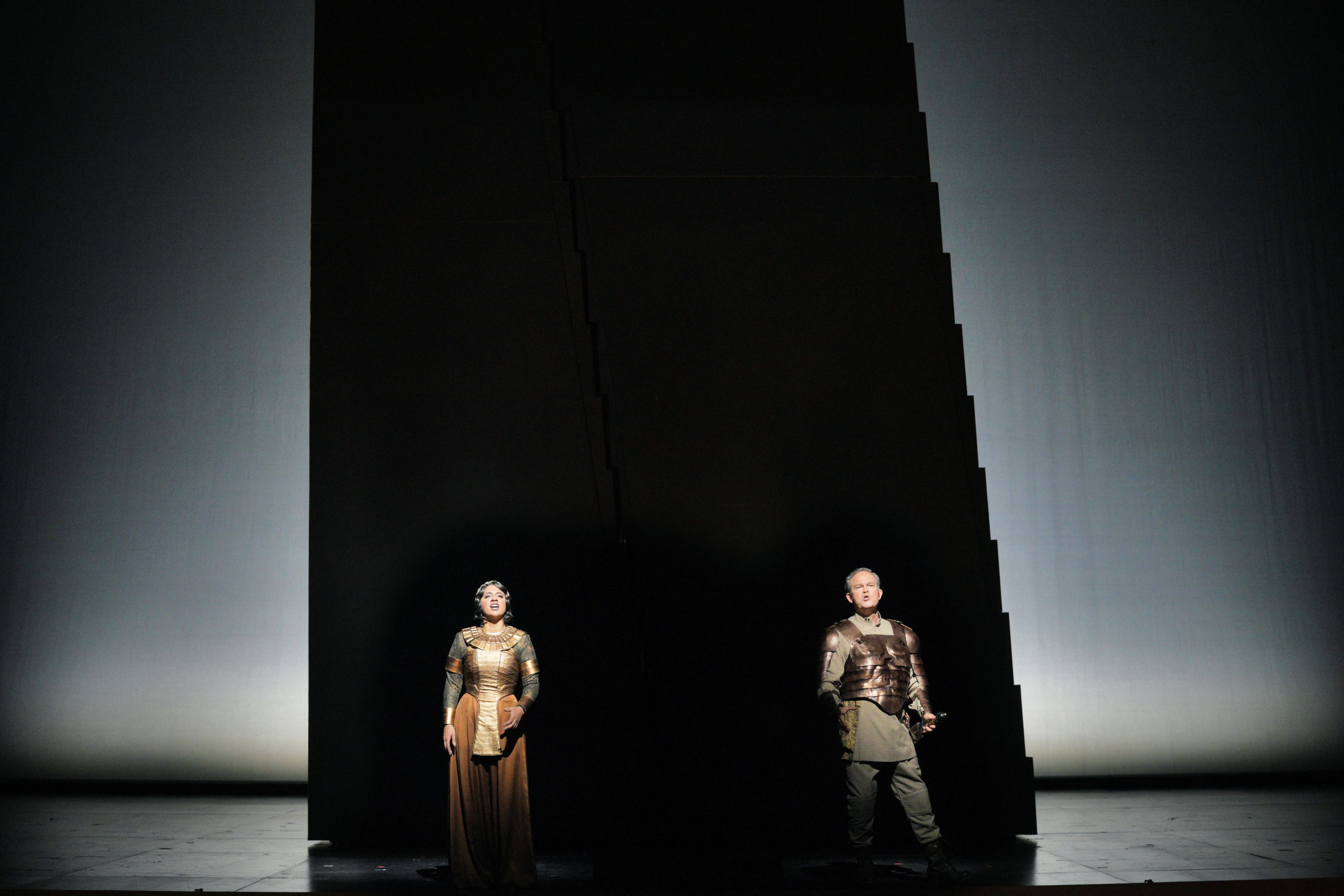
John Adams’ Antony and Cleopatra kicked off in San Francisco on September 10, with performances that ran through October 5. From the composer of Nixon in China, this new work is an international co-commission and co-production with the Metropolitan Opera and Barcelona’s Liceu Opera, which as noted above, was created especially for San Francisco Opera’s 100th season which kicked off on September 9 with a gala concert and Opera Ball.
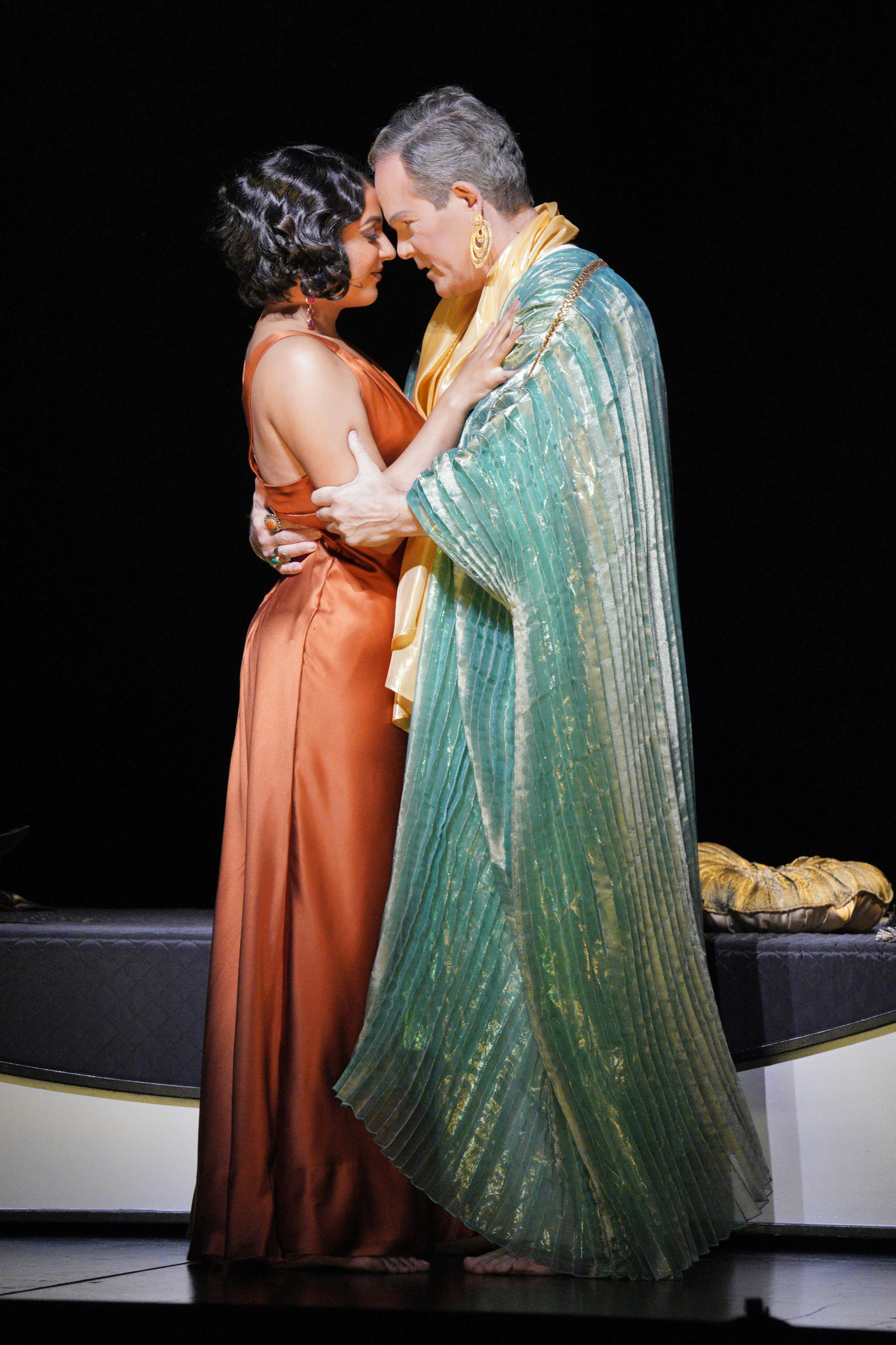
Above, Amina Edris (Cleopatra) and Gerald Finley (Antony) in a romantic endearing moment on stage.
The cast was headed by Egyptian soprano Amina Edris (Cleopatra), noted bass-baritone Gerald Finley (Antony) and tenor Paul Appleby (Caesar). As noted above, the production presents the story’s political battles and the famous love story of these figures from antiquity through an updated setting inspired by 1930s Hollywood glamor. The use of newsreel footage was used to enhance the characters’ public personas.
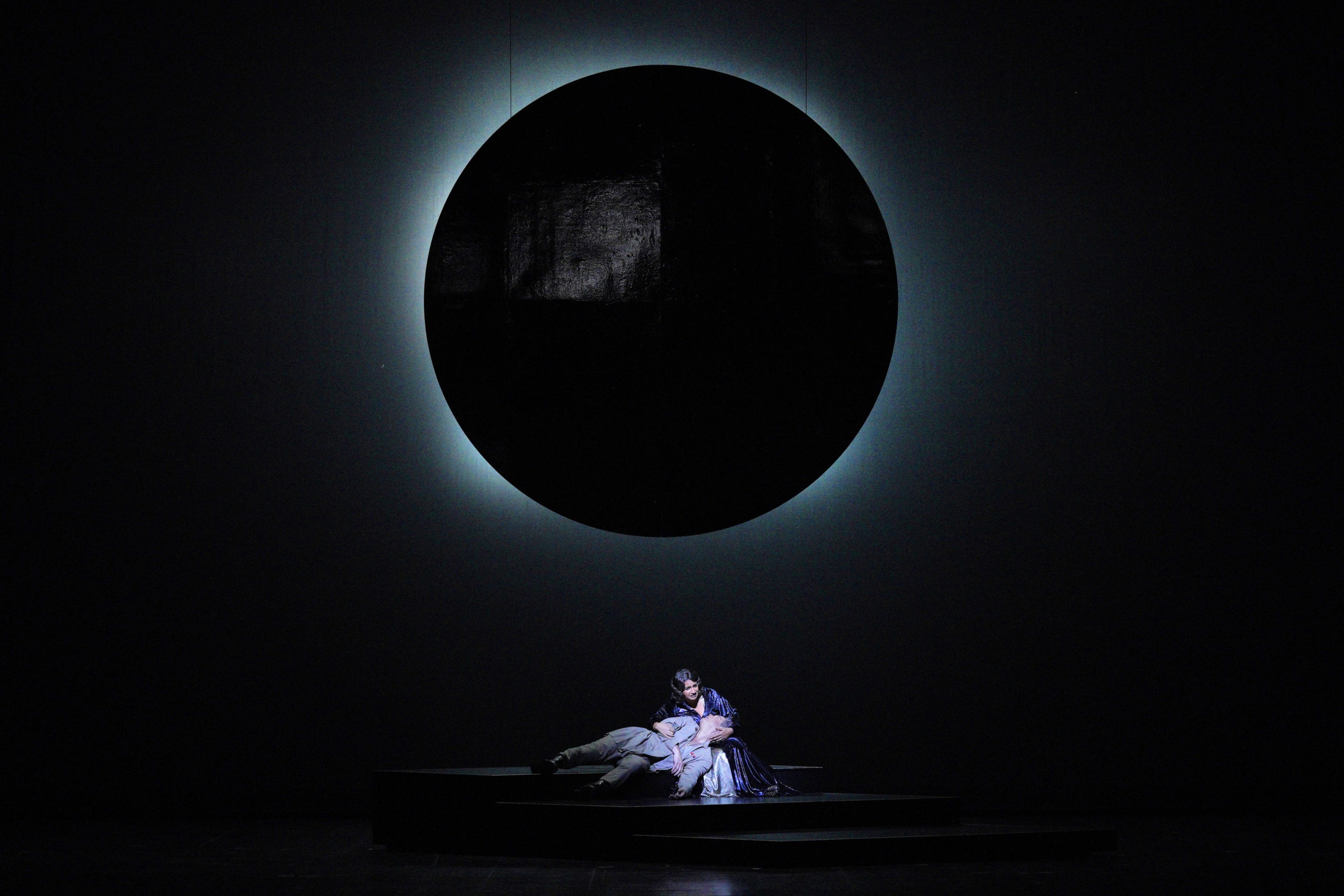
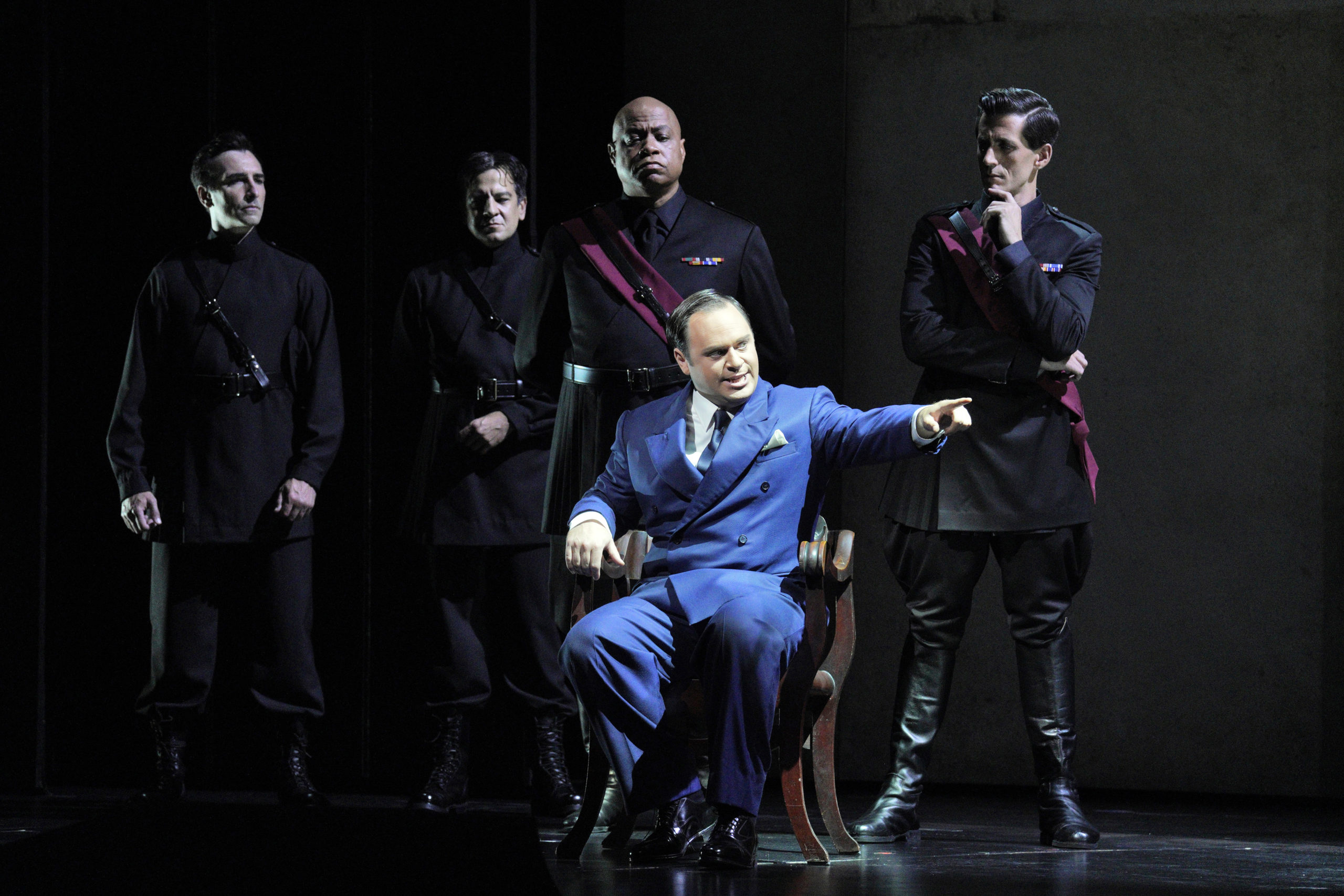
Above, tenor Paul Appleby plays Julius Caesar
Those of you who connect to a traditional Cleopatra of yesteryear may be surprised to find her depicted as more of a Hollywood drama queen than the Queen of Egypt and former mistress of Pompey and Julius Caesar. Below, she lounges by the pool in Alexandria pining away for Antony. In Scene 3, Eros comes to alert her of Antony’s marriage to Octavia, Caesar’s sister. In disbelief and denial, a theatrical Cleopatra throws a tantrum. Note the glitter, designer-like sunglasses and martini in hand.
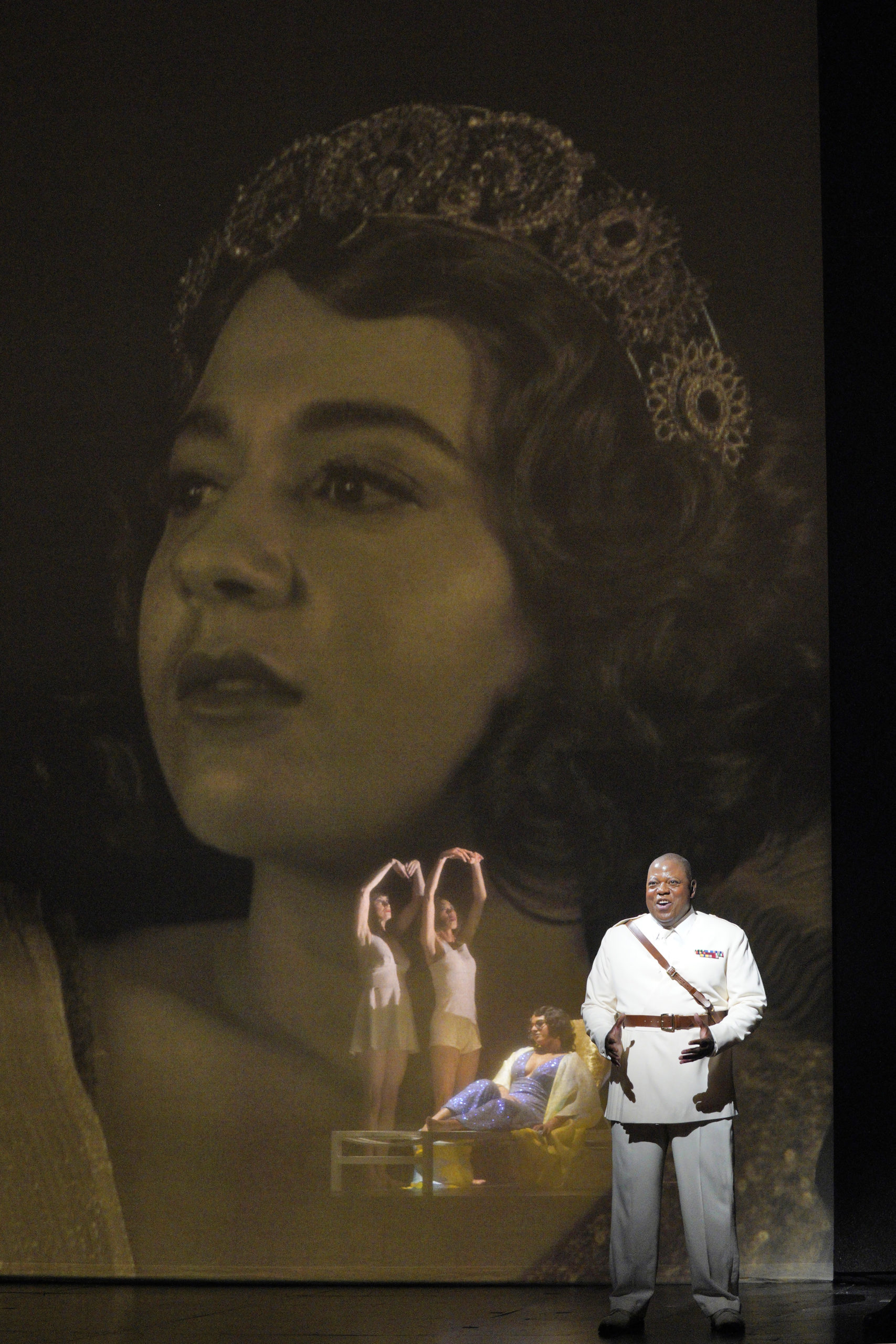
Above and below, Egyptian soprano Amina Edris plays Cleopatra
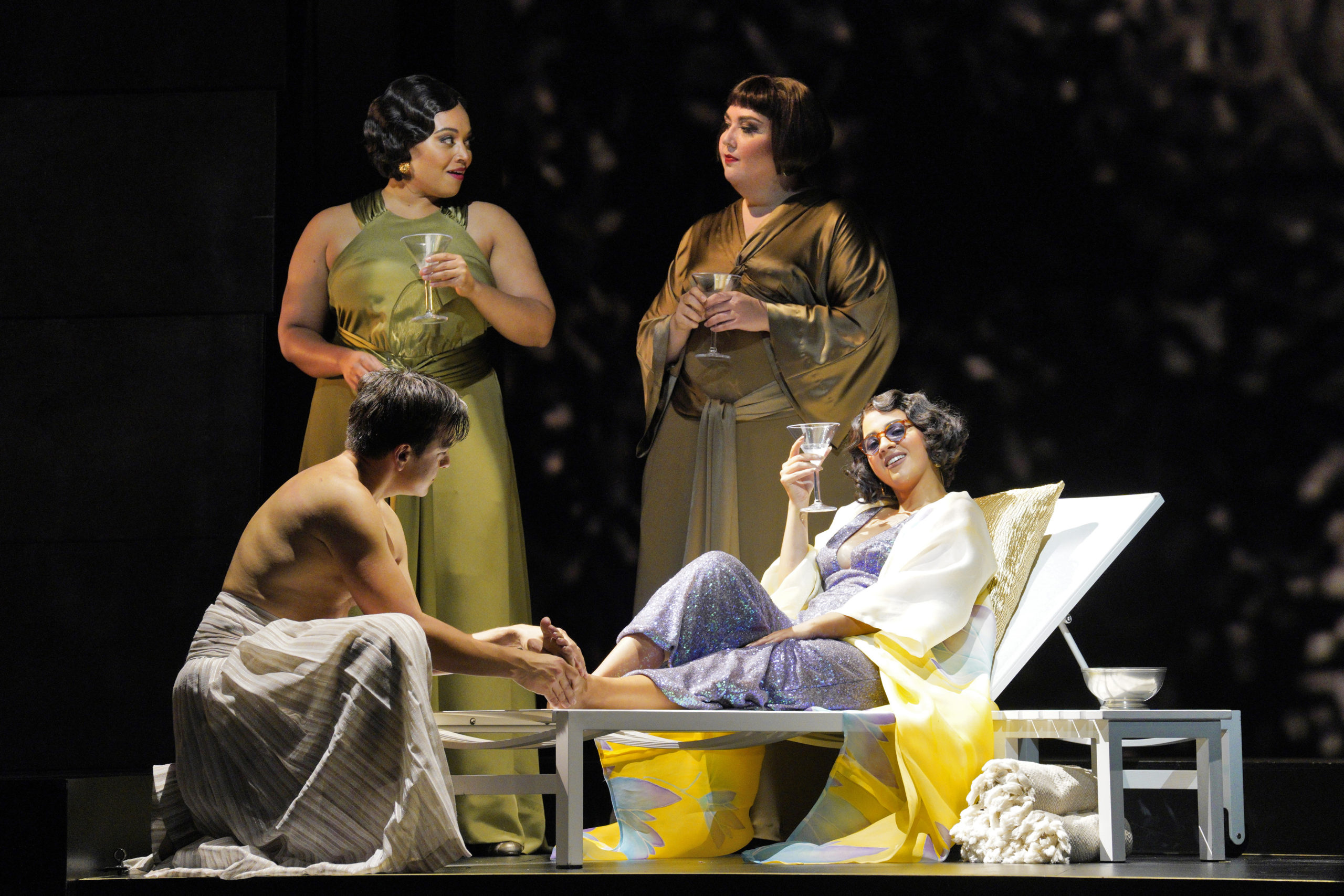
The battle for power and control ensues between Antony and Caesar, but after feeling humiliated for the last time, he returns to Egypt to be with Cleopatra despite being married to Octavia who returns to her brother, pregnant with Antony’s child. An ever so furious Caesar decides to retaliate by declaring war against Antony. At a time in our modern world where the divine feminine is rising, being thrown back into an almost childlike and ego-driven male dominated tit for tat battle was in some ways a reminder of why our consciousness needs to expand in order to avoid unnecessary deaths simply because a powerful man didn’t get his way.
In this Antony and Cleopatra mash-up, Antony feels invincible against the Romans with her sixty Egyptian warships until things go awry. Then, ever so theatrically, Antony says, “All is lost. This foul Egyptian hath betrayed me. My fleet hath joined up with the foe.” And then, “They revel with their enemy like friends long lost. And my heart makes only wars on thee. Bid my men all leave me. Bid them all begone. And you begone too. Be gone! For when I am revenged upon my charm, I’ve done all.”
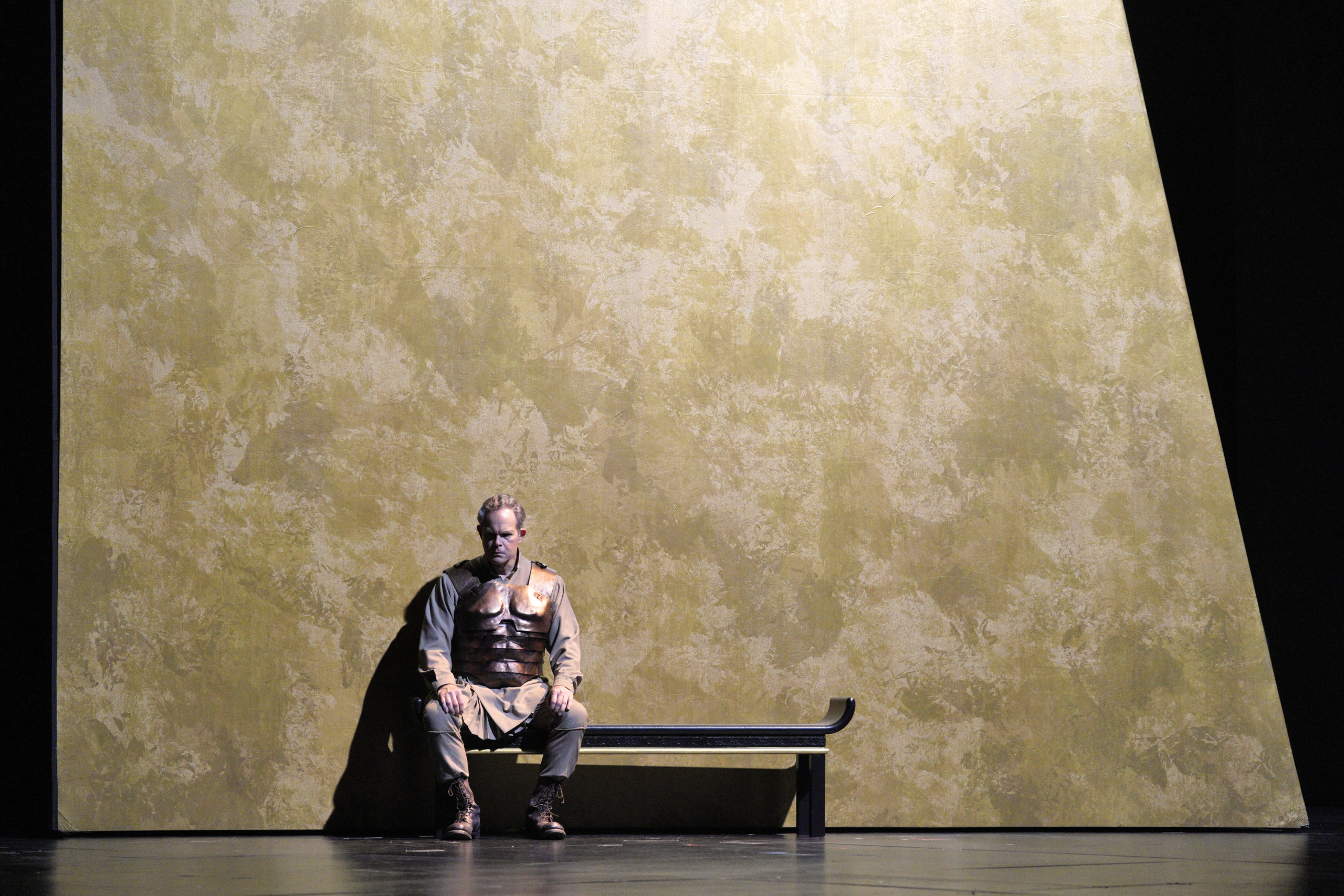
Realizing his demise, his military power, he says, has been neutered by his love for Cleopatra. Humiliated again, he and Cleopatra send petitions to Caesar begging for his mercy.
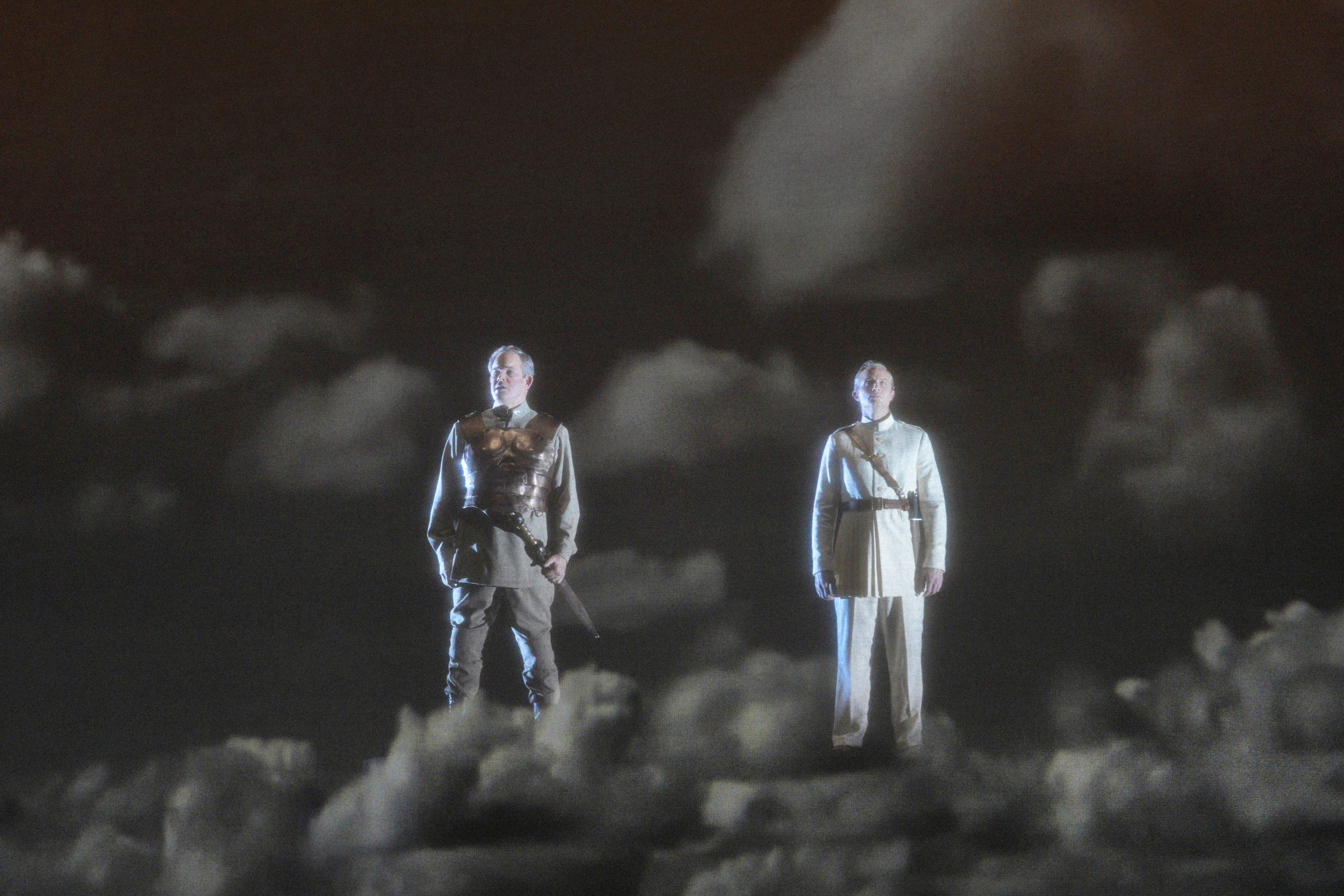
Caesar, feeling more powerful than ever, delivers a riveting speech, proclaiming Rome’s dominance and strength, signaling the rise of the Roman Empire. History knows what happened next.
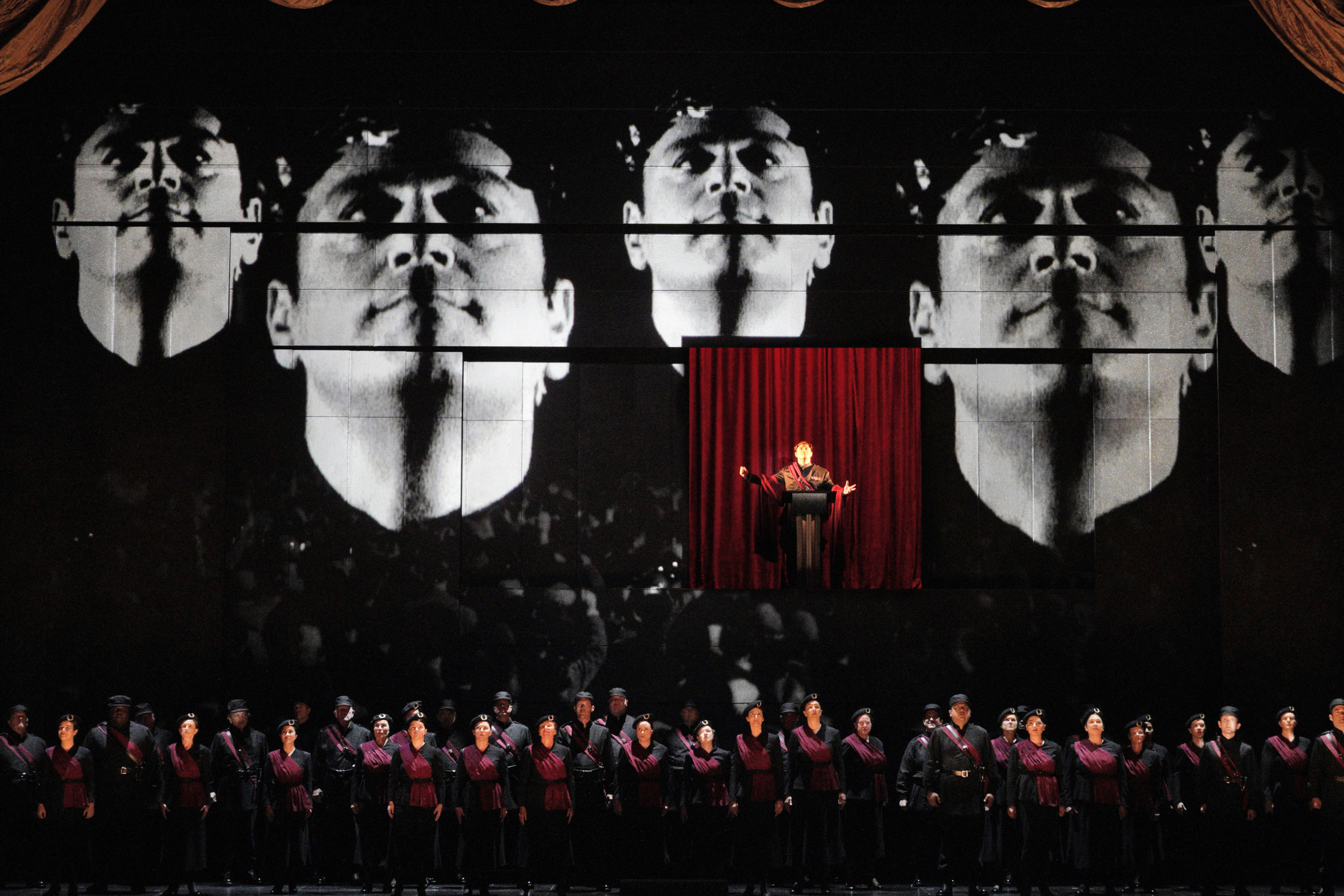
In these three powerful characters, we see their vulnerability, pompous behavior and the result of their actions turning in on themselves, but not before more drama acting out, first with Cleopatra’s ruse of pretending to have committed suicide to punish Antony and recapture his attention and then again with Antony who acts in despair by begging his servant Eros to help him commit suicide as well. Sound familiar? Not uncommon for Shakespeare’s tragedies and dramatic love stories of the time.
My favorite scenes? Cleopatra displaying her royal glory of course, whether it was adorned with fine robes and dresses or in her more traditional Egyptian attire, fit for the Queen she portrayed at the time.
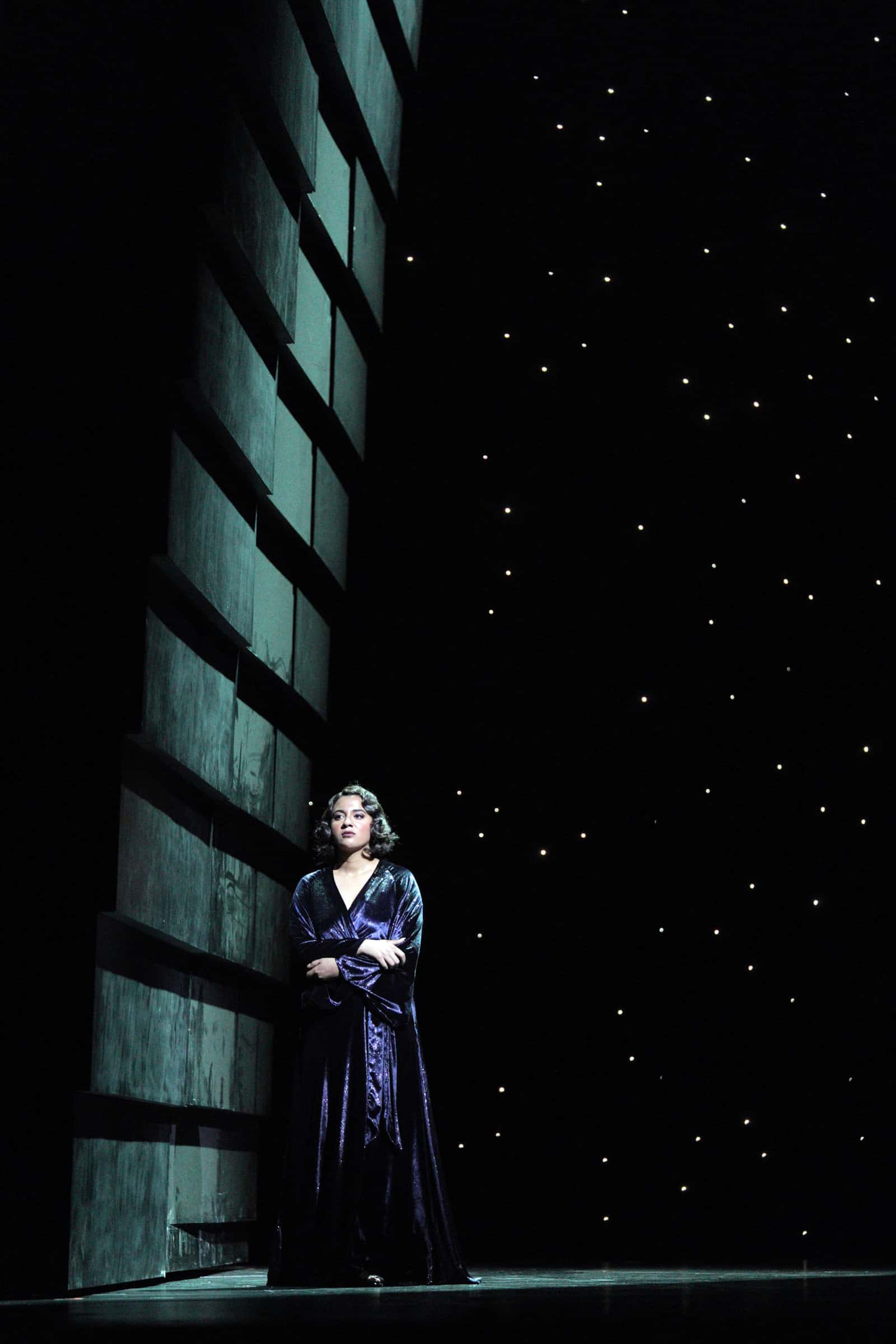
Above and below, I loved the costumes of Cleopatra despite them not being authentic to the original Antony and Cleopatra production…

It’s impossible not to think of Romeo and Juliet when you watch the dramatic scenes of the two lovers. On one hand, there’s the common stance towards passion and love, that it devours all four of these characters (Romeo and Juliet and Antony and Cleopatra), yet in the latter, political power is linked whereas with Romeo, his entire world becomes Juliet. Of course, Cleopatra doesn’t get the same commitment from her Antony and plays games as a way to recapture his attention. Her strategy comes with severe consequences, however, and results in her actual suicide after she can’t bear the humiliation and sorrow following Antony’s death. After she receives poisonous asps, she dies as she imagines Antony and says, “I see him rouse himself to praise my noble act.”
So dramatically Shakespeare and yet as archetypes shape shift and merge into modern versions of the old — as all things do over time — I couldn’t help but see more of Sunset Boulevard’s faded star of the silent screen era Norma Desmond in the Cleopatra of this production, as she recoiled at the thought of Caesar parading her about as an example of his success. Finally, Cleopatra admits her demise and defeat, yet she is certain that her beloved can see her noble act, even from beyond the veil of death.
San Francisco Opera’s Music Director, Eun Sun Kim lead the orchestra, chorus and cast. For more information about San Francisco Opera’s Centennial and upcoming performances, visit sfopera.com.

Above, during intermission…
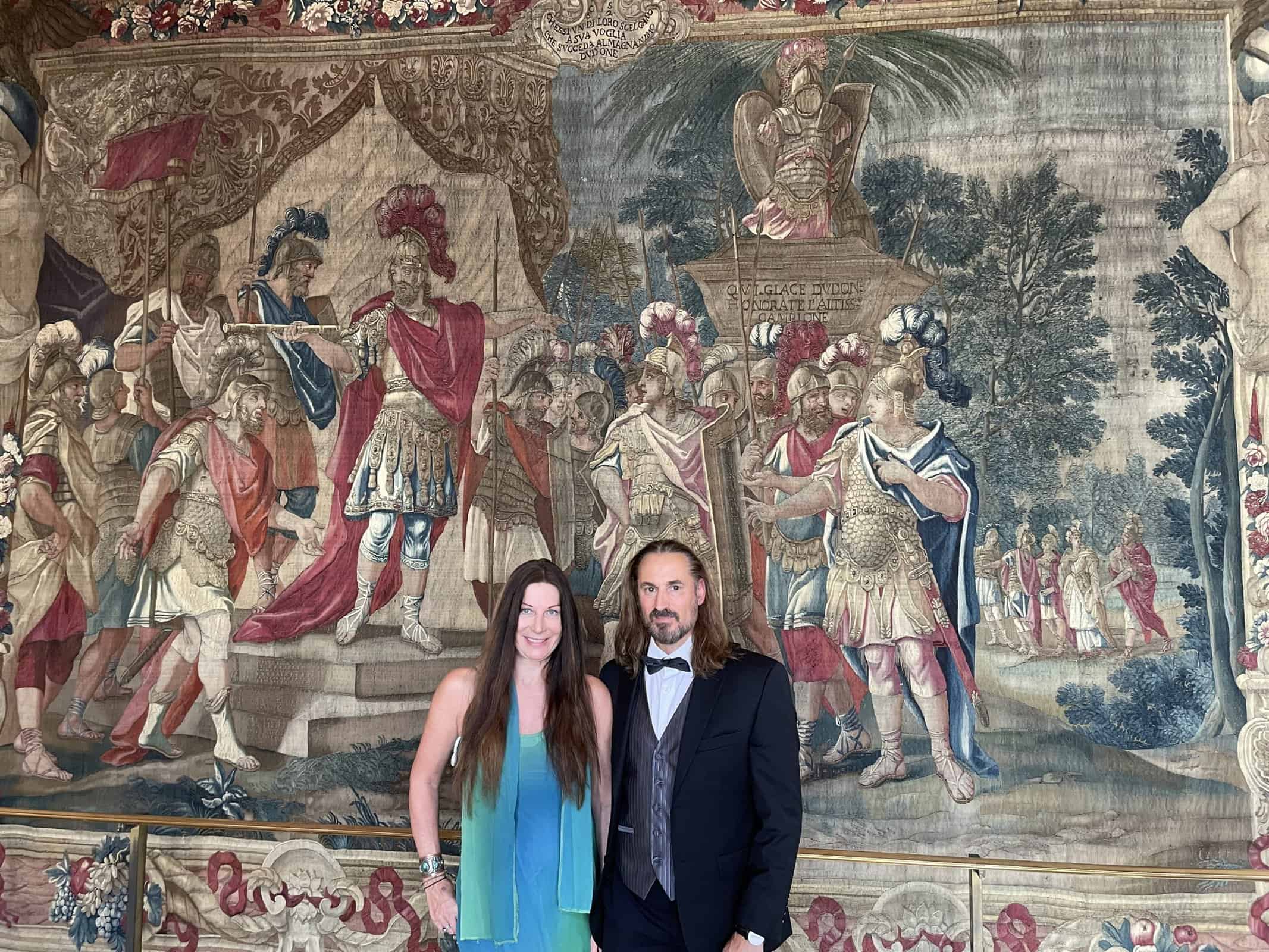

Renee Blodgett is the founder of We Blog the World. The site combines the magic of an online culture and travel magazine with a global blog network and has contributors from every continent in the world. Having lived in 10 countries and explored nearly 80, she is an avid traveler, and a lover, observer and participant in cultural diversity.
She is also the CEO and founder of Magic Sauce Media, a new media services consultancy focused on viral marketing, social media, branding, events and PR. For over 20 years, she has helped companies from 12 countries get traction in the market. Known for her global and organic approach to product and corporate launches, Renee practices what she pitches and as an active user of social media, she helps clients navigate digital waters from around the world. Renee has been blogging for over 16 years and regularly writes on her personal blog Down the Avenue, Huffington Post, BlogHer, We Blog the World and other sites. She was ranked #12 Social Media Influencer by Forbes Magazine and is listed as a new media influencer and game changer on various sites and books on the new media revolution. In 2013, she was listed as the 6th most influential woman in social media by Forbes Magazine on a Top 20 List.
Her passion for art, storytelling and photography led to the launch of Magic Sauce Photography, which is a visual extension of her writing, the result of which has led to producing six photo books: Galapagos Islands, London, South Africa, Rome, Urbanization and Ecuador.
Renee is also the co-founder of Traveling Geeks, an initiative that brings entrepreneurs, thought leaders, bloggers, creators, curators and influencers to other countries to share and learn from peers, governments, corporations, and the general public in order to educate, share, evaluate, and promote innovative technologies.








